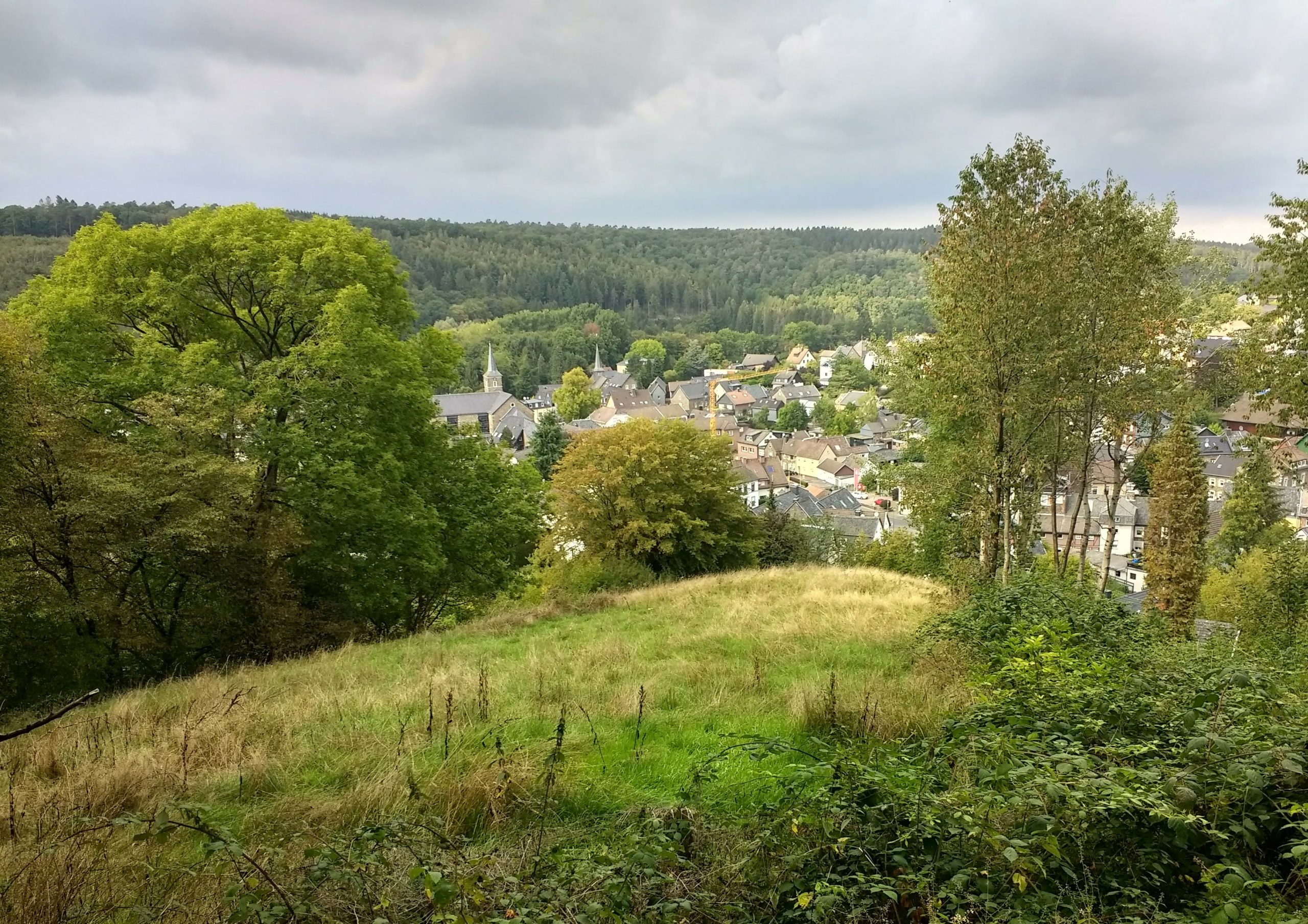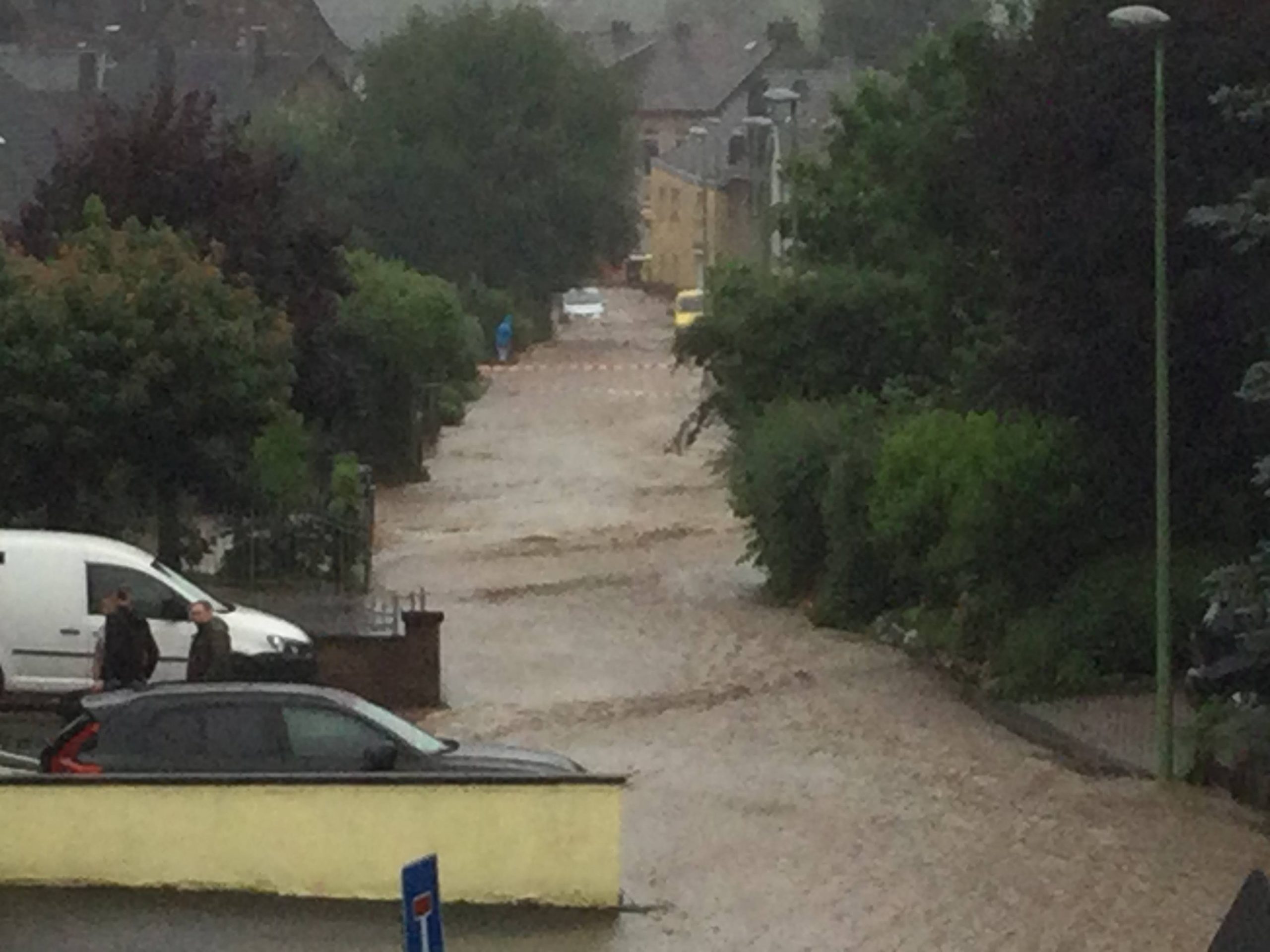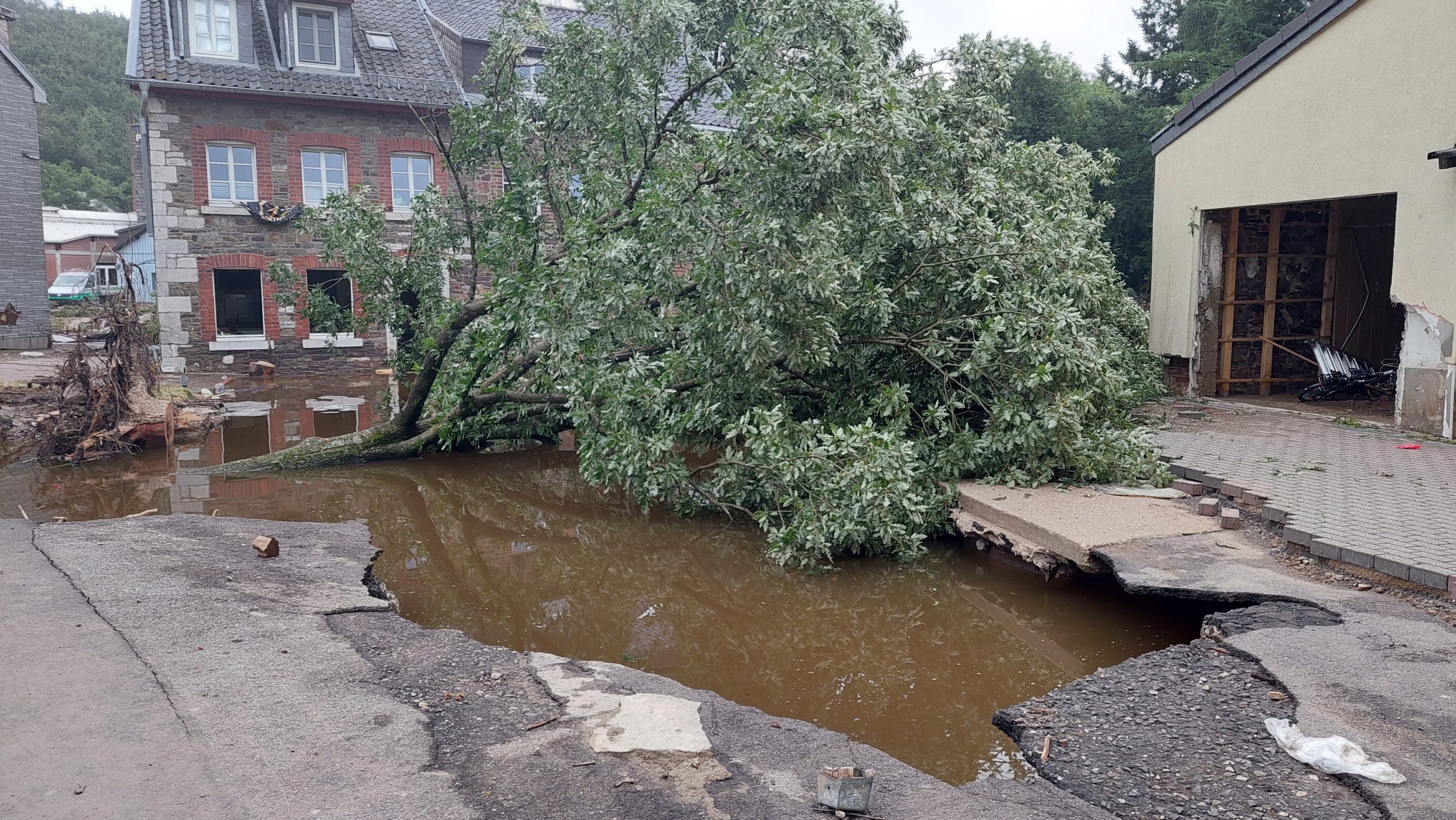
July 18, 2021, by Brigitte Nerlich
When climate change hits home: A personal story
This month, Alice Bell has published an important book entitled Our Biggest Experiment: A History of the Climate Crisis. In it, she takes us “back to climate change science’s earliest steps in the eighteenth and nineteenth centuries, through the point when concern started to rise in the 1950s and right up to today, where the ‘debate’ is over and the world is finally starting to face up to the reality that things are going to get a lot hotter, a lot drier (in some places), and a lot wetter (in others), with catastrophic consequences for most of Earth’s biomes.”
I was just starting to read this book when climate change stared me in the face and said, ‘got you’. The catastrophic floods in Western Germany, Belgium and the Netherlands, struck right at the heart of my childhood home and the region I know so well. I grew up in Zweifall, a little village that is now part of Stolberg. The house I grew up in is situated beside a benign little creek, the Hasselbach, which further down merges with the Vichtbach (Zwei-fall).
When the storm struck, both creeks became torrents and the Vichtbach tore through the village of Vicht and then the city of Stolberg, destroying everything in its path. Look at this video!. I crossed that bridge every day when I went to high school there fifty or so years ago.
Fortunately, the house where my father, aged 93, has been living for more than 60 years, is still standing, but the basement area has been destroyed. Many friends in Vicht have been affected and I actually still haven’t heard from them. I also have only indirect news of my father, who is doing ok, despite lack of electricity and drinking water – thanks to many kind friends.
2011
Since around 2011, climate change and extreme weather events, droughts, floods, heatwaves, wildfires have preoccupied me, academically as well as personally.
In one of my first blog posts from 2012 I wrote: “The debate about links between extreme weather events and climate change has been going on for at least a decade. Most recently, the IPCC published a draft report on extreme weather and climate adaptation at the end of 2011, a year marked by a series of extreme weather events which affected my sister (wildfires and evacuation) […] and one of my students (floods and evacuation), and therefore brought thoughts about issues related to climate change closer to home.” If only I had known!
After that, I wrote numerous posts on extreme weather, one called ‘making weather personal’, which was on weather and climate metaphors. I asked whether extreme weather events were turning climate change from an un-situated into a situated risk? When I was writing this, many articles on climate change still argued that people saw climate change as a distant threat, both in time and in space.
I also published an article with Rusi Jaspal on imagery around extreme weather events. We studied images used in news articles in order to illustrate coverage of the IPCC report on extreme events. We used visual thematic analysis to examine the way these images might symbolise certain emotional responses, such as compassion, fear, guilt, vulnerability, helpless, courage or resilience. We found that many of the images of flooding depicted people in the developing world ‘getting on with it’, of individuals seemingly accustomed to flooding and extreme weather. All this portrayed flooding as still quite far away and exotic.
2021
Now, ten years later, in 2021, climate change or rather, as I call it climate chaos, and with it, extreme weather events, have hit home. They have arrived in parts of the world that everybody thought were ‘safe’. But nowhere is safe anymore, from Australia to Siberia, from Germany to Canada, from California to Bangladesh and so on. The list is getting ever longer.
You will probably all have seen pictures from Erftstadt and Ahrweiler and Hagen and so on. When you put ‘German floods’ into Google images, you can see picture after picture of total destruction. There are almost no pictures of people though – also here in this Guardian article. As Saffron O’Neill would say: This fits “a ‘disaster’ framing …, which might up salience (feelings of issue importance) but decreases self-efficacy (sense of being able to act)”. There are a few images, though, of a certain politician, namely Armin Laschet.
If not now, when?
Laschet, premier of North Rhine-Westphalia, and the candidate for chancellor in Germany’s national election in September, is from the centre-right CDU/CSU and has a position on climate change that is close to that of so-called climate sceptics. He came to visit my hometown, Stolberg, and in particular its most devastated part, Vicht. During his tour of devastated areas, he made some half-hearted references to climate change and then he said: “You don’t change policy just because now we have a day like this”!
This reminded me of Scott Morrison, Premier Minister of Australia, saying during Australia’s most recent devastating wildfires that it was not the time to talk about climate change, and that those who did were merely trying to score political points.
I thought this was wrong then and I think arguing like that is wrong now. As Alice Bell and many others in the wake of this most recent climate disaster have shown, we have known about climate change for decades, if not centuries, including about the changes in ‘weather’ that this might bring about.
A few days ago, Peter Broks retweeted a programme broadcast by the ZDF in 1978 in which the presenter talks very clearly about climate change and its impacts. I remember that clip! And I remember the time when, in 1988, climate change became finally, I thought, climate politics. But nothing has really happened since then. Will the German floods be a wake-up call? They certainly have kept me awake for days!
Thanks
I would like to thank all those who helped my father and me in these difficult times: the friends and relatives in Germany, the Twitter community, and in particular the liveblog of the Aachener Zeitung which kept me always right up to date and provided useful information, including telephone numbers and so on that I could use or pass on!
Here are some pictures of Stolberg after the flood: https://www.reddit.com/r/germany/comments/om0nsv/stolberg_after_the_flood/
Image: Zweifall in better times



Hoping that you father and the rest of the area are safe and able to return–almost said to ‘normal’–but that’s the point isn’t it? What is normal in times of rapid change, and is it desirable?
Today, one week after the disaster, electricity is back but still no way of phoning him directly. So I only get indirect reports. But fortunately quite a few of them. and he is ok. Getting there is another matter, especially with the covid pandemic in the UK being out of control. There are so many extreme weather disasters round the world now, it is unbelievable … and still nothing is done.